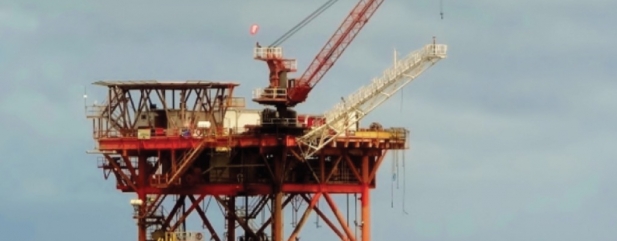Archived article
Please note that tax, investment, pension and ISA rules can change and the information and any views contained in this article may now be inaccurate.
Shares in Trinity could ‘triple in value’ says broker

Tight control on costs and increasing production could improve profitability and cash flow at Trinidad oil producer Trinity Exploration & Production (TRIN:AIM) and provide a catalyst for the share price.
Trinity completed a $15m restructuring earlier this year which has reduced net debt from $34.3m to just $1.2m. The company’s cash balance has also improved by 125% to $11.5m as of 30 June.
The share price enjoyed a rally earlier in 2017 but has stalled over the past six months. We think now is a good time to buy as Trinity is targeting the ‘low hanging fruit’ in its portfolio, according to broker Cantor Fitzgerald.
An increase in operating activities across its core assets during July and August has restored production levels to 2,600 barrels of oil per day (bopd). That puts it on track to hit year-end guidance of between 2,600 and 2,800 bopd and a 12-month target of 3,000 bopd.
The target should mainly be achieved by low-cost work on existing wells and drilling some additional production wells on the onshore portfolio. Executive chairman Bruce Dingwall tells Shares the company may drill on its offshore Trintes field in 2018. Drilling is more likely in 2019 however.
At current oil prices of around $56 per barrel Trinity should be able to deliver decent profit as the company believes it can make money above an oil price of $28.2 per barrel.
Mature oil and gas industry
Trinidad has a mature oil and gas industry. The first oil deposits were discovered in 1866 and the first well was drilled in 1867 with continuous production beginning as early as 1908.
Trinity is a material player in this industry – accounting for more than 3% of the island’s total oil production.
Dingwall says although the regulatory system can take time to navigate, ‘it is also very process-driven, so you know where you stand’.
The island has plenty of infrastructure including roads and equipment. The sub-surface is also very well understood because there has been so much drilling. This reduces the risk of production wells underperforming.
Dingwall may already be familiar to investors in the UK oil and gas sector. He founded North Sea-focused Venture Production in 1997. The company was floated on the stock market at 170p in 2002 and subsequently acquired by Centrica in August 2009 for 845p per share. Dingwall insists his current company is ‘not an idea; it is a well-established profitable business’.
Important information:
These articles are provided by Shares magazine which is published by AJ Bell Media, a part of AJ Bell. Shares is not written by AJ Bell.
Shares is provided for your general information and use and is not a personal recommendation to invest. It is not intended to be relied upon by you in making or not making any investment decisions. The investments referred to in these articles will not be suitable for all investors. If in doubt please seek appropriate independent financial advice.
Investors acting on the information in these articles do so at their own risk and AJ Bell Media and its staff do not accept liability for losses suffered by investors as a result of their investment decisions.

 magazine
magazine










